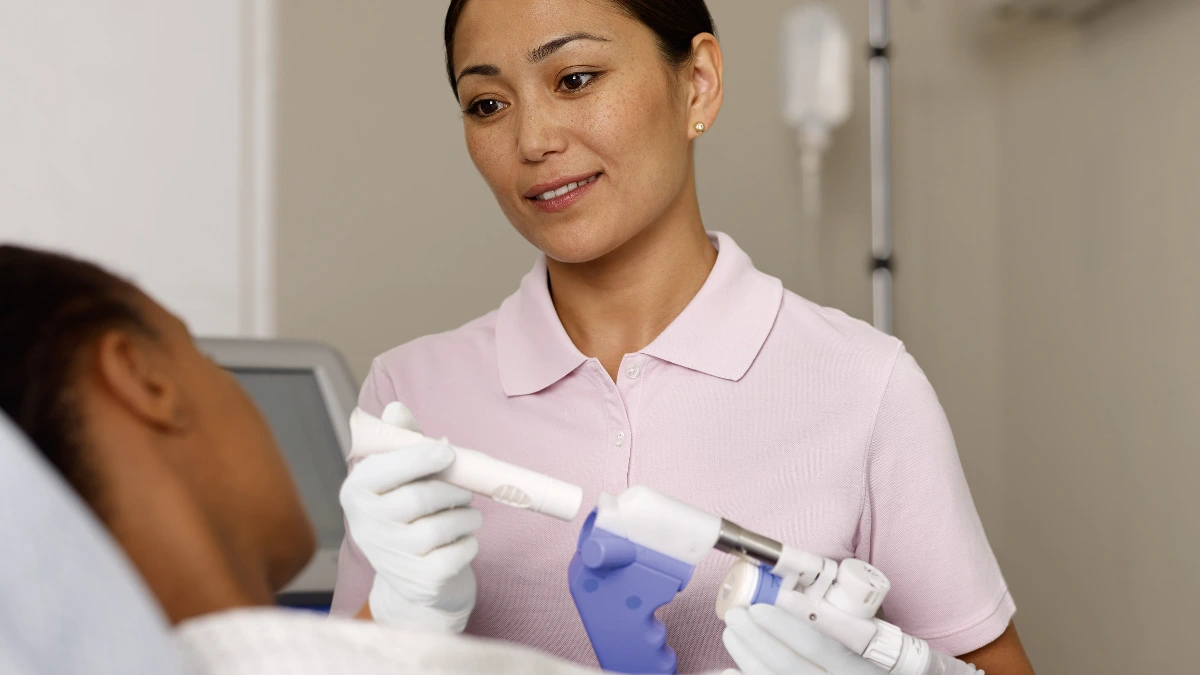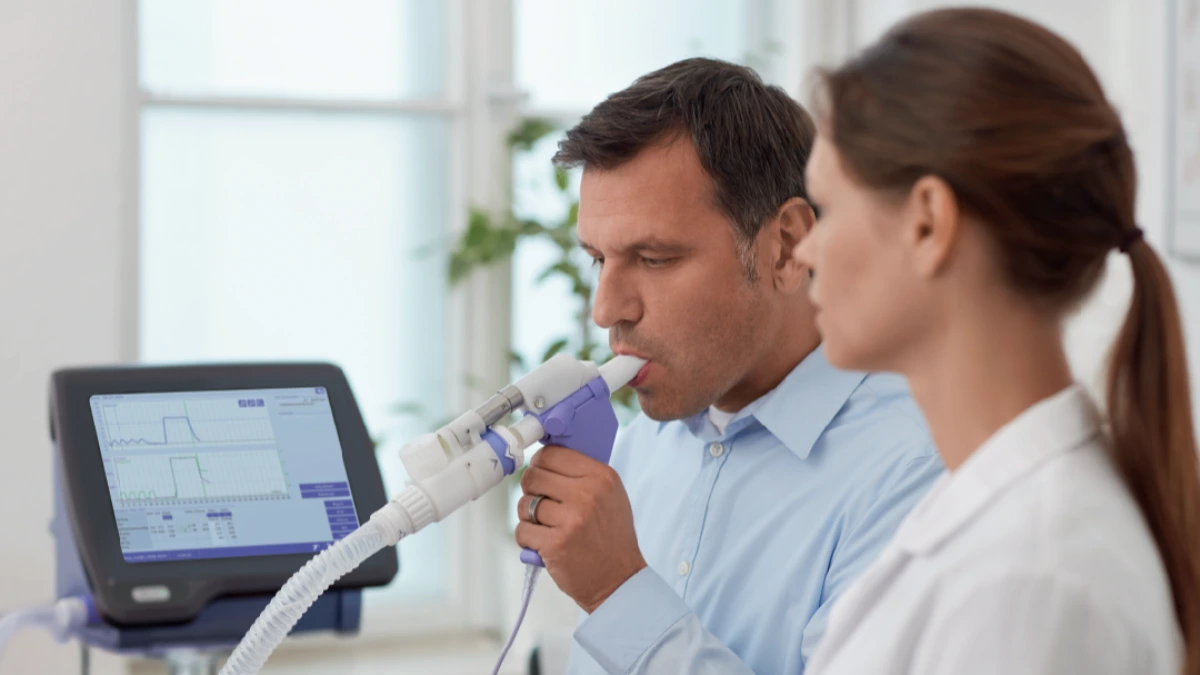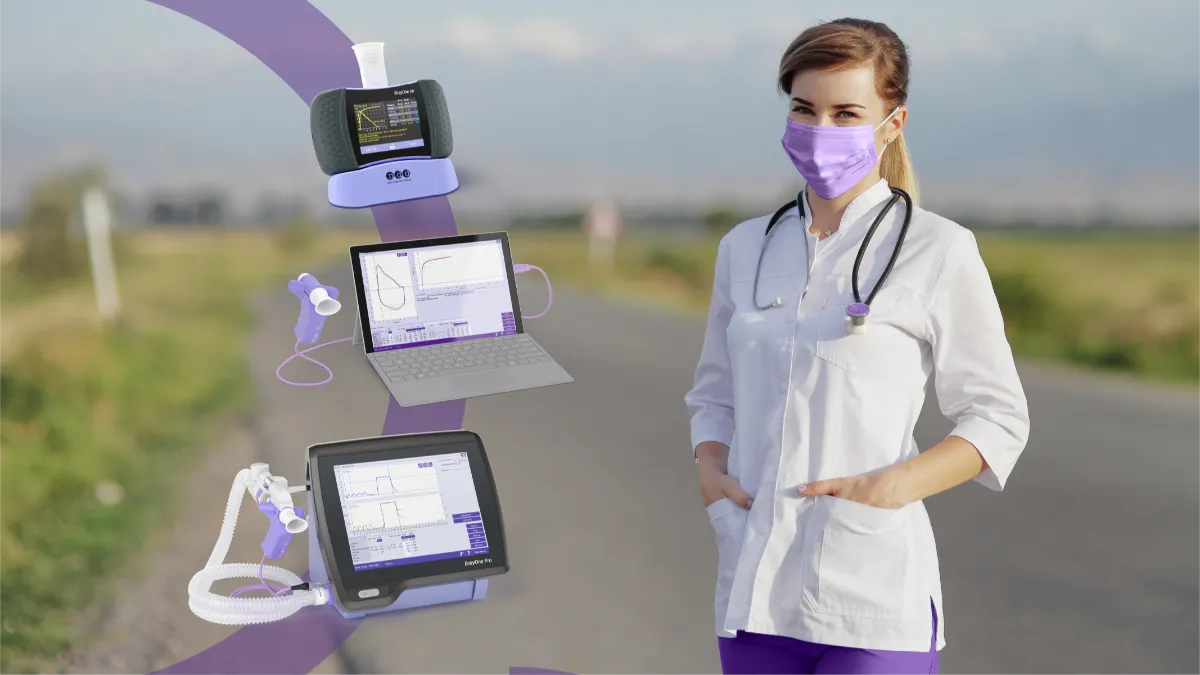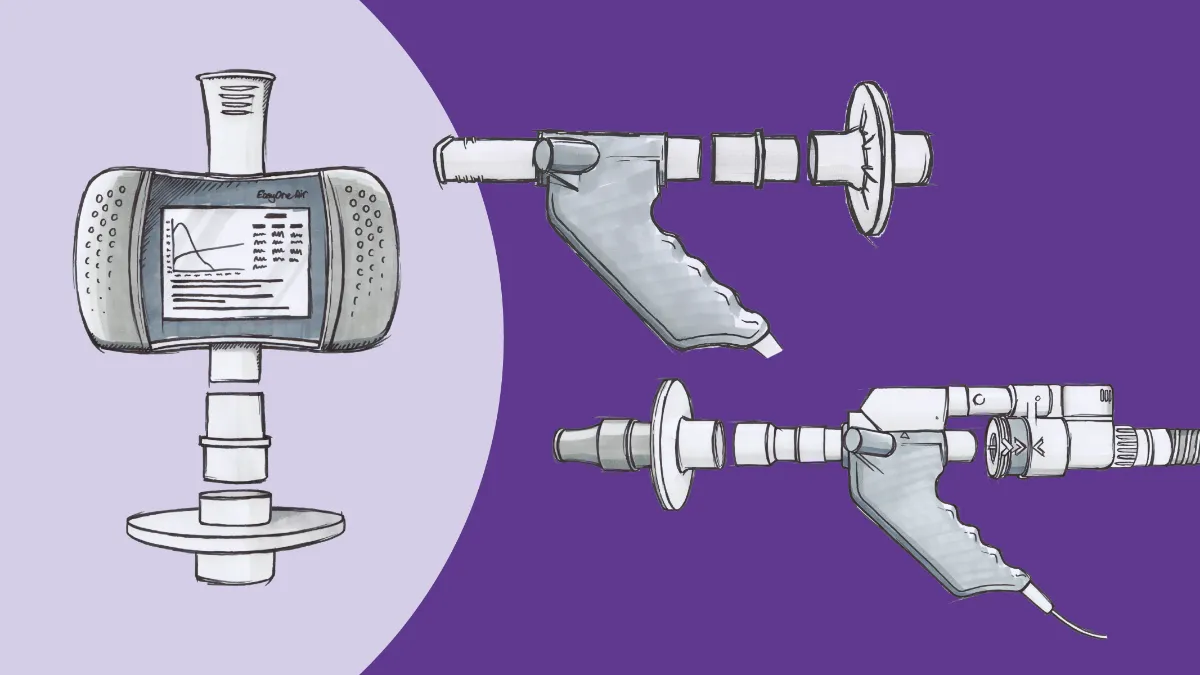A baseline pulmonary function test is the key to ongoing treatment
Featuring exclusive interview with Tidewater Lung & Sleep Center

Pulmonary function testing (PFT) is the standard for knowing how well your patient’s lungs work. PFT starts with spirometry to measure the flow of air in and out of the lungs and provides a set of numbers that can guide the assessment, diagnosis, and management of asthma, COPD, and other lung diseases.
Advanced pulmonary function testing including DLCO and lung volumes, goes beyond flow by measuring how well the lungs can move oxygen into the bloodstream and carbon dioxide out. The numbers are critical for accurate lung assessment, but if there isn’t a baseline measurement for comparison, the numbers are not nearly as useful.
The only way to know if a patient’s lung function is improving or deteriorating is to have a baseline measurement. That initial measurement allows physicians to compare it to future tests and show whether a patient is declining or within normal function. Accurate testing is critical to providing the most effective treatment.
The team at the recently expanded Tidewater Lung and Sleep Center in Suffolk, VA, and Dr. Rajnish Dhawan, a board-certified physician in Pulmonary medicine, see COPD and asthma patients daily. The initial visit always begins with a baseline PFT measurement.
We recently spoke to Madison Cochran, the Director of Operations, and Jill Meeker, the Practice Manager at Tidewater Lung and Sleep Center, to learn more about their PFT procedures.
Importance of yearly baseline PFT testing #
Madison Cochran performs all the PFTs at the Tidewater Lung and Sleep Center. She told us that if a patient hasn’t had a PFT in over a year, Dr. Dhawan will request a baseline test, and all patients receive yearly testing.
COPD patients are the exception; they have a PFT every six months.
Madison said, “If you don’t know where they were, then you don’t know where they’re going.”
Complete PFT testing at the point of care
Discover ndd's PFT solution
Point-of-care PFT testing #
The PFT and spirometry testing at TLSC is done with the EasyOne Pro device. They told us that the handheld aspect of EasyOne Pro is indispensable for both technician and patient because of the convenience of point-of-care testing.
The handheld device makes testing much more practical and accessible for patients confined to a wheelchair or with limited mobility.
The EasyOne Pro also gives them the flexibility to move around with the hand sensor, and with the prompts and visual queues, spirometry is much easier than their previous PFT device.
Additional benefits of the EasyOne Pro #
The EasyOne Pro gives efficient and accurate lung function measurements in various settings. Some of the additional benefits of the EasyOne Pro include:
- A compact and lightweight design.
- The ability to complete PFTs in under 20 minutes.
- A patient and user-friendly interface, providing a positive experience for staff and patients.
- Accurate and validated DLCO trials each time with the TrueCheck Technology’s Self-Quality control feature.
- Easy annual maintenance that healthcare providers can perform independently in 10 minutes.
The value of baseline PFT testing #
Baseline pulmonary function testing is the foundation of pulmonary disease management. The baseline numbers provide clinicians with an objective measurement that allows them to assess baseline lung function, make an initial diagnosis, and continue to optimize treatment over time.
When you have your patients’ baseline numbers, you can use that comprehensive information to help them breathe better today while giving them an effective plan for the future.
Written by

Allison DeMajistre
BSN, RN, CCRN
Allison DeMajistre is a freelance medical writer with a decade of clinical experience as a critical care registered nurse. She writes about cardiology, pulmonology, and several other medical topics. She strives to simplify complex medical information for patients and to write insightful and informative articles for health care professionals.









